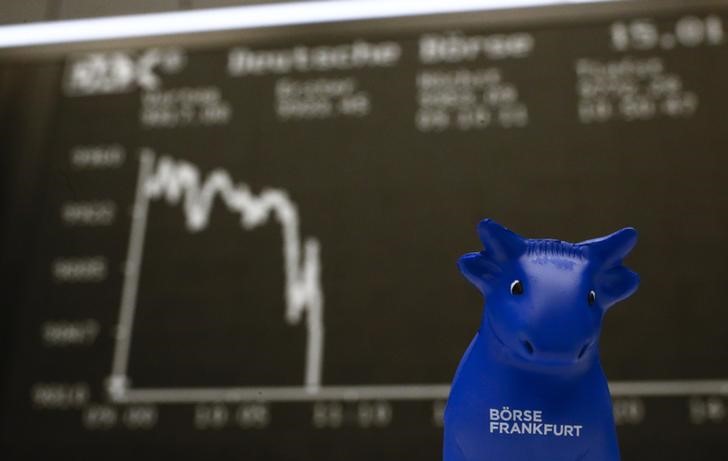European stock markets slipped lower Friday, with the uncertain future of the region’s important auto sector continuing to weigh on sentiment.
At 04:02 ET (08:02 GMT), the DAX index in Germany dropped 0.5%, the CAC 40 in France slipped 0.6% and the FTSE 100 in the UK fell 0.3%.
The decision by the Trump administration to impose a 25% U.S. tariff on auto imports has hit sentiment across the globe, including in Europe given the significance of the sector throughout the region.
The European automobiles and parts index was at its lowest level since early December and is poised for a sixth straight week in the red – Europe’s carmakers exported around 800,000 vehicles to the United States last year, according to official U.S. trade data.
German Chancellor Olaf Scholz on Thursday criticised Donald Trump’s decision to impose tariffs on the auto sector..
“U.S. President Trump’s decision is wrong,” Scholz said in a statement. “The U.S. has chosen a path at whose end lies only losers, since tariffs and isolation hurt prosperity, for everyone.”
Data released earlier Friday showed that German consumer sentiment was broadly unchanged heading into April, as the GfK consumer sentiment index inched up to -24.5 points from a slightly revised -24.6 points the month before.
Also, British retail sales unexpectedly climbed by 1% in February, an improvement from the 0.4% decline expected, driven largely by higher spending on clothing and household goods.

This comes as the Office for National Statistics confirmed that Britain’s economy expanded 0.1% in the fourth quarter.
In the corporate sector, the Polish logistics company Inpost (WA:INPT) posted strong revenue growth in its latest earnings report, driven by expanding parcel volumes and continued investment in its automated delivery network, though infrastructure costs weighed on profitability.
Oil prices eased marginally lower Friday, but were still heading for a third consecutive weekly gain on a tightening global supply outlook.
At 04:02 ET, Brent crude futures fell 0.5% to $73.00 a barrel, and U.S. West Texas Intermediate crude dropped 0.5% to $66.60 a barrel.
Both benchmarks hit a three-week high on Tuesday, and traded over 2% higher for the week, driven by U.S. threats of tariffs on countries purchasing Venezuelan oil and gas, along with declining U.S. crude inventories.
The crude contracts are up more than 7% since hitting multi-month lows in early March.